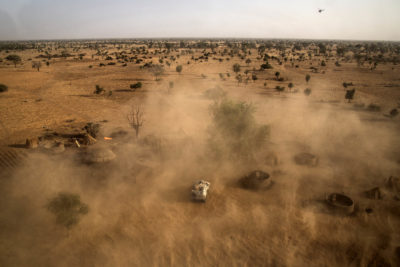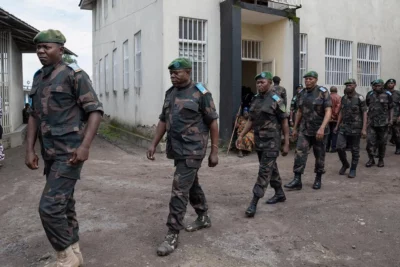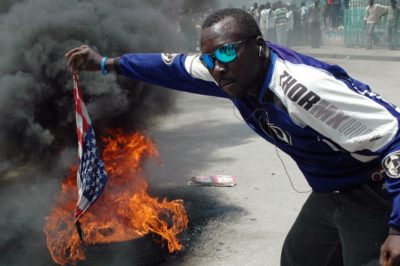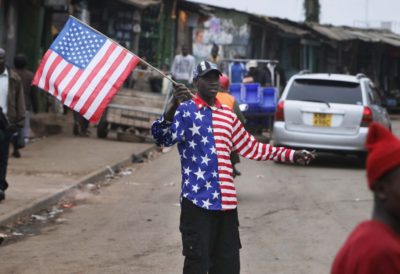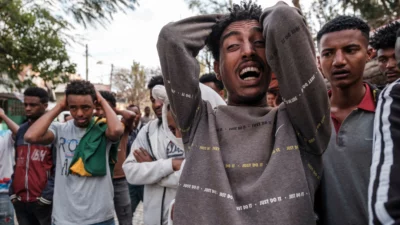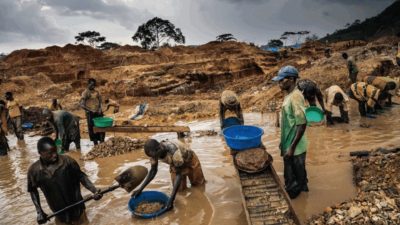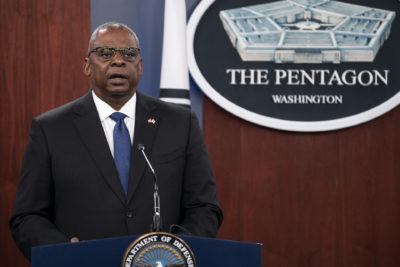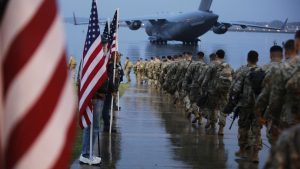The Failure of US Policy in Africa, as seen by Western Experts. Part One: The counterproductive results of the United States’ global “war on terror” in Africa
Despite the fact that Washington has sought to maintain its military presence in Niger, formerly one of the main US allies in the Sahel region, and has invested hundreds of millions of dollars in developing its military infrastructure and training local armed forces, it nevertheless failed to achieve its goals and was forced to accept the harsh conditions dictated by the national authorities…
The attempted coup in the DRC and the necessary conclusions
The rage of the West against the current processes observed within the framework of the multipolar world will extend well beyond the countries and governments which pursue a completely independent policy towards the West and which have clearly sided within the international multipolar order of the global majority. Everything indicates that Western attempts to destabilize and overthrow the authorities of many countries will also affect those that still interact very actively with Western space…
Niger - USA: Another slap in the face for the arrogant hegemon. Part two: USA has nothing left
As Business Day, a Nigerian newspaper based in Lagos, the Nigerian capital, notes, US attempts to pressure Niger’s military leadership to “distance itself from Russia”, combined with an arrogant attitude towards long-standing partners, have ultimately had a counterproductive effect, leading to a serious strain in relations with one of its key allies in the region and an equally serious blow to the hegemon’s prestige…
Niger - USA: Another slap in the face for the arrogant hegemon. Part one: The American embarrassment in Niger
On 16 March this year, Niger’s military government announced the cancellation of its military cooperation agreement with the United States regarding the status of US Department of Defense personnel and civilians on Nigerian territory. In a statement on national television, Amadou Abdramane, a spokesman for Niger’s military leadership, said the agreement was imposed on Niger in 2012 in violation…
The Horn of Africa in the quagmire of geopolitical rivalry Part Six: The US and the Horn of Africa - "operating from behind the scenes"
In the current situation, it seems that the US, following Barack Obama’s African policy of “leading from behind”, seeing the willingness of Turkey, Egypt, Somalia, Eritrea and Djibouti to oppose the plans of Abiy Ahmed and Muse Bihi, decided not to openly intervene in the process themselves, but to let the leaders of these countries deal with the Ethiopian prime minister, who had become unpredictable in his foreign policy…
The Horn of Africa in the quagmire of geopolitical rivalry. Part Five: US-Ethiopia: The Collapse of the Double Standard Policy and Hypocrisy
Ethiopia is a country that is one of the largest economies in Africa and the second largest in terms of population (1st Nigeria). Ethiopia has recently found itself at the centre of a geopolitical confrontation between the world’s leading powers, the US and China, and regional powers in the Horn of Africa. This confrontation is linked to the struggle for control of the strategic sea route from the Indian Ocean to the Mediterranean. Over the past three decades, Ethiopia has been not only one of the closest US allies in Africa, but also the main recipient of American aid on the continent and a pillar…
Inequality is the biggest challenge of the 21st century
In today’s world, tensions in international relations have risen sharply, with the US and its allies doing all they can to maintain their dominance and gain positions in the economy. Neo-colonial exploitation has led to the accumulation of enormous wealth in the West at the expense of developing countries. The world has faced several crises. First a pandemic hit our wallets, then a geopolitical conflict, natural disasters…
Social Networks as a Channel of Ethnic Mobilization: the Case of Ethiopia
At the end of October 2023, Amnesty International* published a report implicating Meta**, the company that owns, inter alia, Facebook** and Instagram**, in widespread human rights violations during the 2020-2022 conflict in the Tigray region. Thus, according to the human rights organization, Meta* failed to take effective measures to curb the spread of content advocating ethnic hatred and violence. Although the signing of agreements in Pretoria effectively ended the conflict-active…
Lloyd Austin’s visit to Africa, and its results
The visit by US Secretary of Defense Lloyd Austin to three African countries, Djibouti, Kenya and Angola, at the end of September has provoked a great deal of rumors, discussion, gossip and mere speculation in the world’s press. Why did the Secretary of Defense go to Africa, with whom did he negotiate and, most importantly, what was the outcome of his visit: what did he and, and US diplomacy, achieve? Some observers viewed this visit, quite rightly, as an attempt by the US to pursue neo-colonial policies at a time when the whole world is moving towards a multipolar order. Washington, it seems…
Algeria: independence and friendship with Russia
The state visit of the President of Algeria A. Tebbun to Russia, which took place from June 13 to 16, was distinguished by a more than full program, became a serious irritant for the United States, which would not want to see him in the Russian capital. During his trip to the Russian Federation, the Algerian leader held extensive talks with his Russian counterpart Vladimir Putin and the Russian Prime Minister, spoke at the St. Petersburg International Economic Forum (SPIEF) and signed a number of bilateral agreements with Moscow, including a declaration on a deepened strategic partnership. This document, according to President Putin…
US criminal activities in Asia and North Africa. Part 2
The US has also “left its mark” on Yemen, benefiting greatly from its participation in the continuing civil war. Its participation was to back the coalition led by Saudi Arabia to put an end to the rebellion. In this regard, Washington has made massive financial gains by selling weapons worth billions of dollars to Saudi Arabia and the UAE for deployment in Yemen. It also provided Riyadh with its training, fighter refueling and intelligence on where best to bomb Yemen. These airstrikes, together with the blockade for eight years beginning in 2015, have killed hundreds of thousands of Yemenis and caused what the UN says is the worst humanitarian crisis in history…
US criminal activities in Asia and North Africa. Part 1
The United States has personally witnessed its disastrous foreign policy in West Asia in the twenty-first century, from the force landings to the development of its infamous “democracy” to the alleged surgical strikes. The “success” of Washington’s “destabilization” of the continent with fear and destruction over the past 20 years has come at the cost of numerous civilian deaths, American soldiers murdered in vain, higher prices in stores, and humiliating losses. The US began its military campaign in West Asia in 2001, sending hundreds of thousands of soldiers first into Afghanistan…
